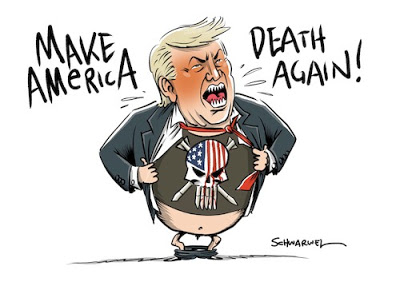Trump Has Recklessly Dragged the Persian Gulf to the Brink of War
 |
| Seyed Hossein Mousavian 29/01/2020 |
The twelve consequences of Suleimani’s assassination.
Millions of Iraqi citizens recently gathered together to participate in a “million-strong” march, the biggest demonstration during the history of Iraq in the capital Baghdad to demand the withdrawal of all U.S. forces. Al-Sadr, whose party holds the most number of seats in Parliament, seized on the public anger over the drone strike that killed Maj. Gen. Qassim Soleiman to call “a million-strong, peaceful, unified demonstration to condemn the American presence and its violations.”
On January 6, 2020, I attended the funeral of Suleimani, commander of the Quds Force of the Iranian Revolutionary Guards Corps, and Abu Mahdi al-Mohandes, the Commander of the Iraqi Popular Mobilization Forces, in Tehran. No well-orchestrated photographers or drone shots from above can do justice to the ocean of humanity present in their funeral processions. And Tehran was only one among many other cities that witnessed the funeral processions of Suleimani and his companion Abu Mahdi al-Muhandis. Millions of people mourned his assassination in Baghdad, Karbala, Najaf in Iraq, and in Ahwaz, Mashhad, Tehran, Qom, and finally his hometown, Kerman.
I have no doubt in my mind that his assassination will have an impact, not only on the future of U.S.-Iran relations but in the region and beyond. Here are twelve consequences I can point to in the aftermath:


